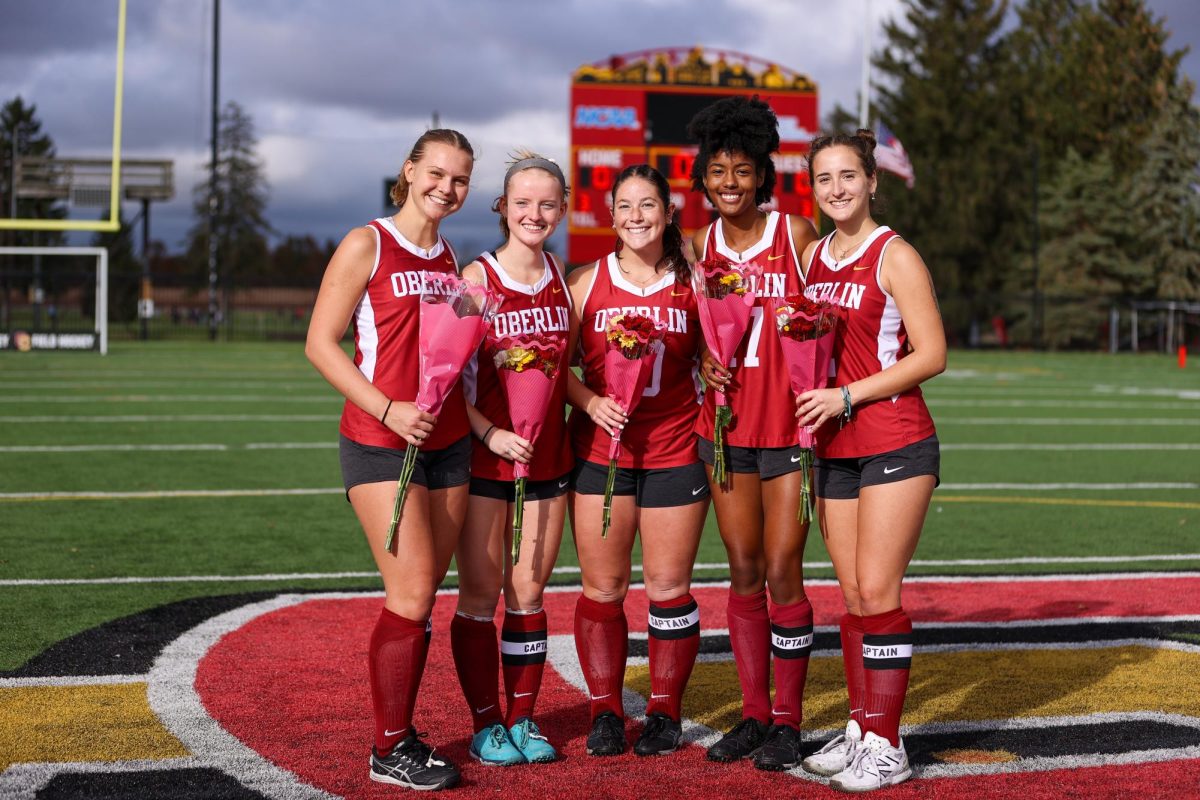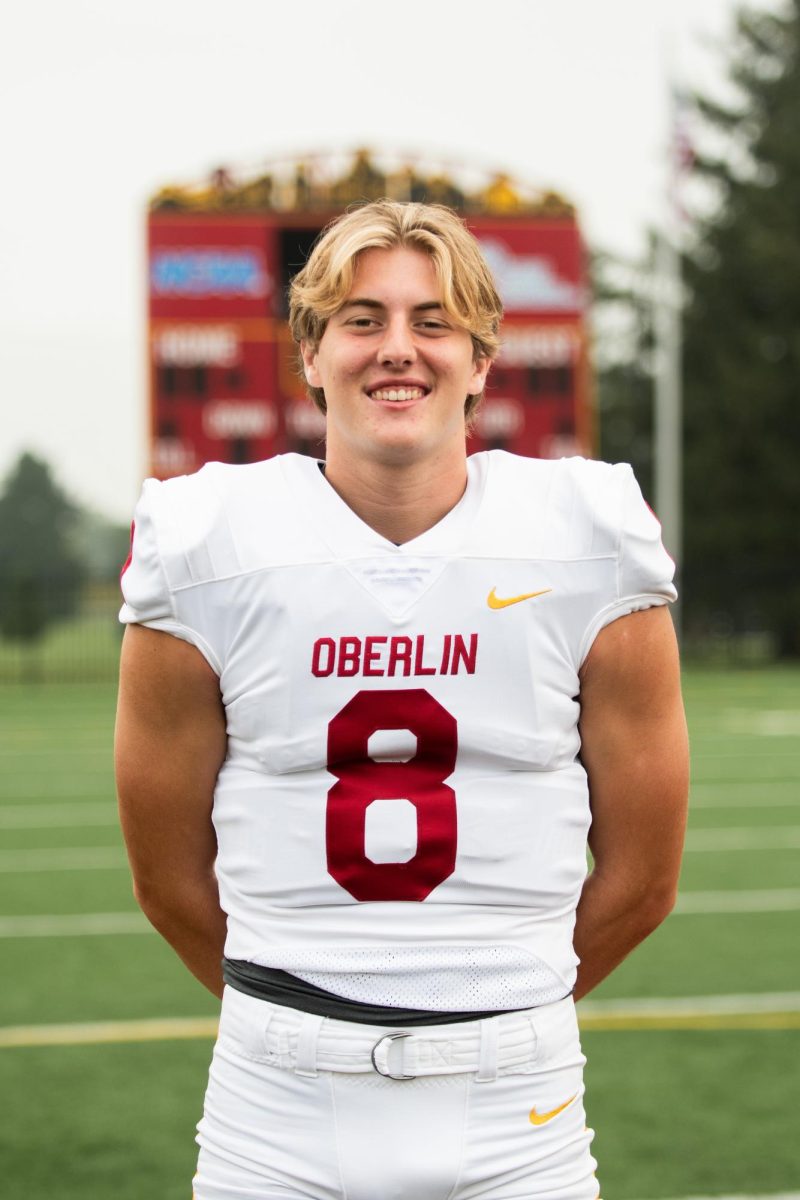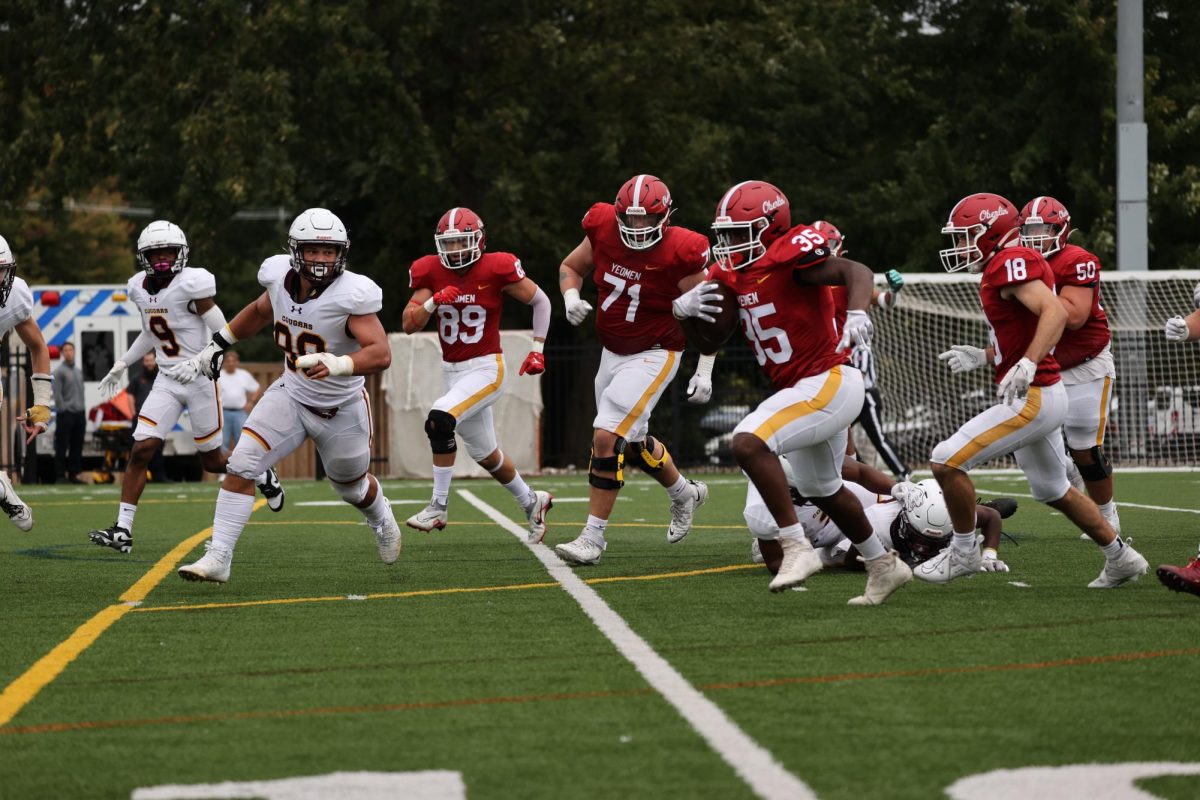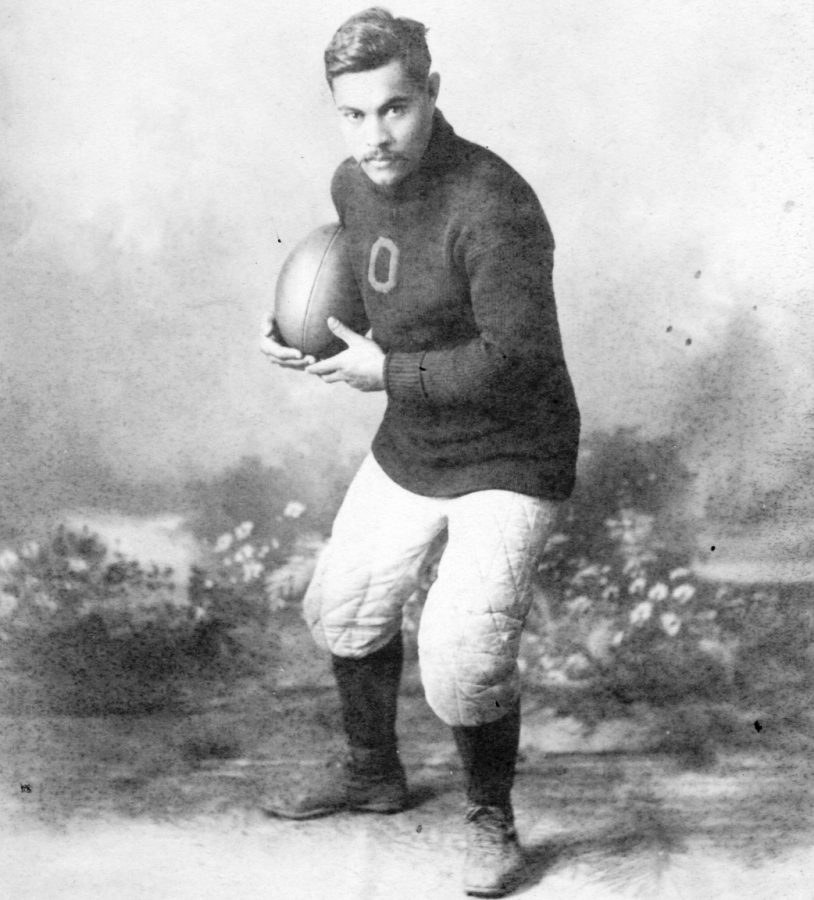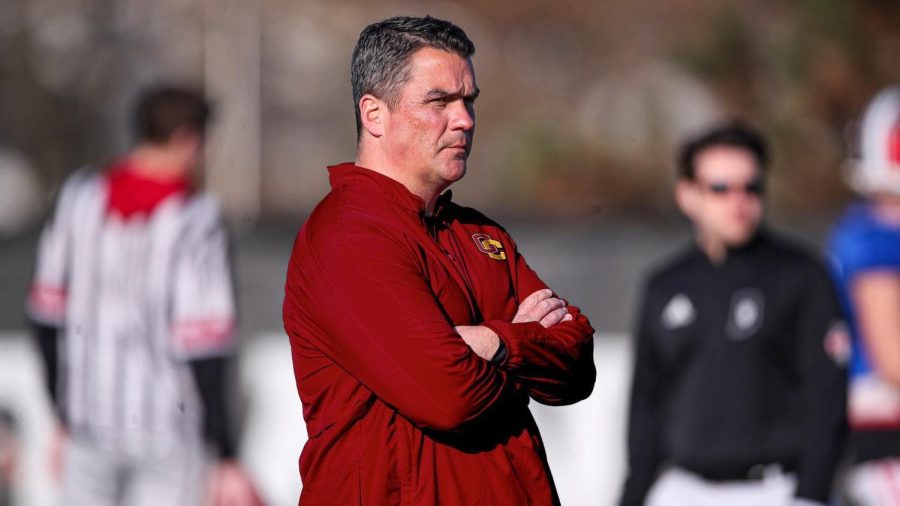Of the approximately 85 total football coaches in the North Coast Athletic Conference, only two are female, and both of them coach at Oberlin. Director of Football Operations and Running Backs Coach Roseanna Smith and Offensive Line Coach Ashley Cornwell are the only two female coaches of exclusively male sports teams at Oberlin. Cross country, swim and dive, and track and field all have a men’s and women’s team that share the same coaches.
Both Smith and Cornwell played football growing up, despite the lack of women’s teams available to them.
“Starting in middle school, I told everyone I could how much I loved football and wanted to play,” Smith wrote in an email to the Review. “Every time I did, everyone would give me a weird look or shoot down the idea. My parents were passively supportive … no one in our family had ever played football … At first, I was just testing myself — was I strong enough to do it? And then I wanted to be good.”
Smith ended up becoming the first woman to ever achieve a varsity letter in football at her high school. In college, she played with the Iowa Courage, a women’s club team. She eventually moved to Atlanta where she played with the Atlanta Xplosion for five years as part of the Independent Women’s Football Team, during which she collected two national championships. In 2010, Smith was called up for the very first United States National Women’s Tackle team. There, she played center and earned second-team All-World All-Star accolades during their gold-medal performance at the first-ever International Federation of American Football Women’s World Championship.
Cornwell also played football, although as she got older and her fellow players got larger, she realized her size would make it difficult for her to continue in the sport.
“As everyone started getting really big, and I was 5’4’’ and going against a 6’2’’ [defensive back], that wasn’t fun anymore,” Cornwell said. “But coaching was a way for me to stay in the game because I loved how it pushed me mentally and physically.”
Cornwell began coaching in high school and continued through college. In 2022, she was selected for the NFL Bill Walsh Diversity Fellowship, where she was able to work with the Tennessee Titans and the Tampa Bay Buccaneers. She was also selected for the NFL International Player Pathway Program where she coached four international players, two of whom were selected to NFL teams for the 2023 season.
Cornwell and Smith have both managed to have successful careers in professional football, even though it is still a largely male-dominated field. In the 2022–23 NFL season, there were 15 female coaches out of the roughly 400 total NFL coaches, which is the highest number achieved in the league for any season. In general, the number of female coaches has been on the rise in the NFL, partly in response to the League’s diversity initiatives, such as the Bill Walsh Diversity Fellowships and initiatives requiring teams to have a woman or a member of an ethnic or racial minority on their offensive coaching staff.
Smith noted that the increase in opportunities for women in professional coaching roles has been impactful.
“Over my lifetime, I went from being one of the few girls to play high school football to seeing girls represented in Super Bowl Commercials to working at a school where there are two female position coaches,” Smith wrote. “Every woman in those roles has continued the legacy required when you are the first to accomplish a milestone: not to be the last. I love that each woman has a different story of making their own path.”
Cornwell also mentioned the benefits of the NFL’s diversity initiatives.
“I think the accelerator programs are awesome,” Cornwell said, in reference to programs from the NFL which bring together existing head coaches and new coaches of marginalized identities. “It’s doing a good job getting people who are qualified and who are a minority in an area where they can be seen, and it’s just continuing the whole mindset of, ‘Don’t hire them because they’re a minority. Hire them because they are also qualified.’”
Both Cornwell and Smith agreed that the new opportunities which allowed them to build their careers and end up coaching at a college level exceeded what they had ever imagined was possible at a young age.
“It was once unusual or uncommon for girls and women to be involved in football — that has changed dramatically,” Smith wrote. “Becoming a college football coach was beyond any dream I had growing up, but I love that it can be for girls now.”
Despite the opportunities and success she’s had, however, Cornwell also noted that her gender, particularly in combination with her age, caused some people to initially write her off.
“There’s always some hesitancy from some coaches because I’m so young. I’m 22, and I’m a female, so they’re always like, ‘Why are you doing an NFL internship?’” Cornwell said. “That part is hard, but how I overcome it is I know my stuff. I’m on my game. I impress people by my work ethic and my knowledge of the game, especially for my age.”
Cornwell also noted that despite some of the initial hesitancy, once people and players started to work with her, they realized that her gender doesn’t impact her ability to coach.
“Good leadership and great leadership qualities don’t really differ by gender,” Cornwell said. “I think at the end of the day, almost every single player that I’ve ever worked with, … if they did have any worry about having a girl coach them, at the end of the day, I’ve realized as long as you’re getting them better and you know what you’re talking about and you show up and you show that you care, they do not care that they’re being coached by a female. They just care that they have a good coach.”
Smith agreed, mentioning that the most important aspect of coaching is building relationships with the players.
“I was some of my players’ first female coach,” Smith wrote. “I take my role seriously to first make sure they know I care about them as people … and next, to make them as prepared as I can for anything they might encounter.”


